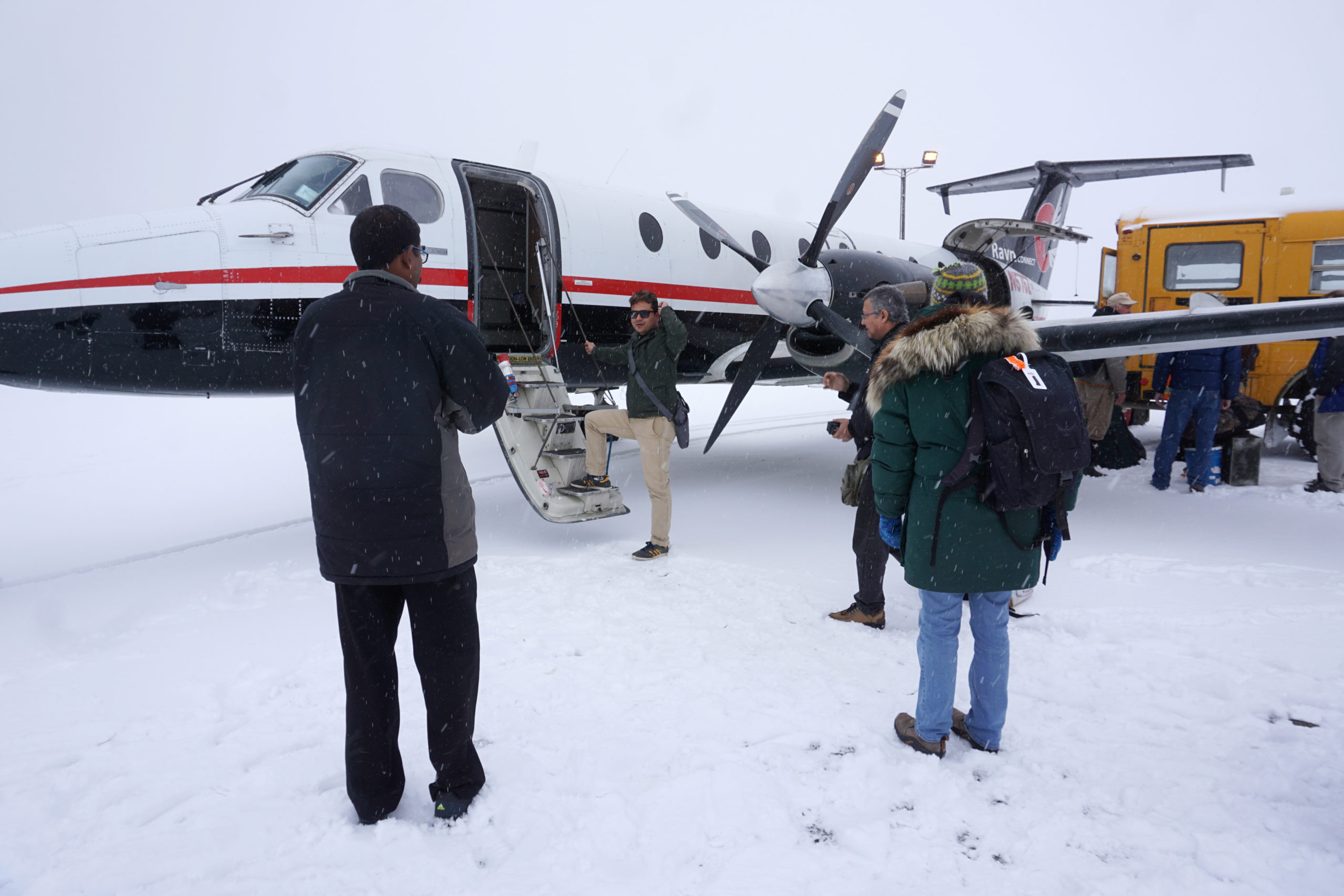North Slope Borough, bankrupt airline reach deal allowing alternate carriers access to facilities
The borough had originally threatened to seize Ravn's Arctic facilities to ensure air access could be maintained to its remote communities.

The municipal government covering a vast stretch of Arctic Alaska has struck a deal to lease facilities from the bankrupt airline that, until it abruptly grounded its planes, was the largest Alaska-based carrier and a dominant transportation link for the rural parts of the state.
The North Slope Borough has agreed to lease properties within its borders from Ravn Air Group, making moot an emergency order that threatened to seize some of the bankrupt airline’s assets.
[Alaska’s North Slope Borough seizes RavnAir assets, setting up bankruptcy fight]
Ravn’s attorneys gave notice of the agreement in a letter filed on April 13 in federal bankruptcy court in Delaware. Under the agreement, reached on April 10, the borough will have a short-term lease of Ravn hangars, offices, equipment and other assets considered necessary to ensure continued essential air service by other carriers. The borough has paid an initial fee of $110,000 and will pay $100,000 a month for three months, and in exchange will have “immediate access to the facilities and equipment” while a longer-term agreement is worked out, the letter said.
The agreement was produced through negotiations “that recognized the unprecedented impact the global Covid-19 pandemic has had on our nation, the State of Alaska, and RavnAir Group,” along with “the crisis situation” that the borough’s April 5 emergency order caused, the letter said. Ravn hopes to work out similar agreements with other municipalities that have depended on the carrier for transport and delivery service, the letter said.
Ravn has said the pandemic cost it about 90 percent of its passenger revenue, prompting the bankruptcy filing and the layoff of nearly all of its more than 1,200 employees. The company was more than $90 million in debt at the time it filed for bankruptcy, according to an affidavit filed in court.
Loss of Ravn’s service left much of rural Alaska scrambling for transportation and cargo deliveries. Most rural Alaska communities lack outside road access and depend on air service as basic transportation.
Meanwhile, a Fairbanks-based air carrier, Everts Air Cargo, has emerged as a potential buyer for a large portion of Ravn’s assets. Robert Everts, president of Tatonduk Outfitters — which does business as Everts Air Cargo — sent a letter to the court expressing his company’s “strong desire” to purchase or lease key ground assets in seven hubs. Those sites include Anchorage, the southwestern Alaska hub Bethel, and — in the North Slope Borough — Utqiagvik and Deadhorse (which serves Prudhoe Bay oil fields), said the letter, filed in court on April 14.
Both developments are encouraging, said David Fauske, a spokesman for North Slope Borough Mayor Harry Brower.
“We just want the hangars being used, not locked up. The NSB appreciates any company or companies willing to step up, especially during these difficult times,” Fauske said in an email.
The borough’s emergency order, issued the same day that Ravn declared bankruptcy, threatened to scuttle an aid package that the company was hoping to get from its creditors. A bank representing the creditors had been considering an immediate $12 million loan that would allow Ravn to meet its payroll, but the threat of a borough asset seizure made lenders reluctant to follow through. Additionally, the state of Alaska’s position was that the borough’s order was illegal on multiple grounds. Alaska Attorney General Kevin Clarkson said that, while the borough had legitimate concerns about protecting air service for communities that would otherwise be stranded, the seizure order was “counterproductive” to the goal of ensuring passenger and cargo service and payment to Ravn’s employees.
“As long as local governments might be attempting to seize Ravn’s property it will be more difficult to establish replacement air service,” Clarkson said in an April 7 statement.
The mayor, in a Facebook post released before the agreement with Ravn was reached, said the intent of his emergency order was simply to ensure that alternative carriers would be able to operate in the borough’s eight communities.
“For sake of clarification, my emergency order didn’t seize any aircraft; rather, simply put, we just wanted access to RavnAir’s or the banks ground facilities so that we could get our mail and other goods that were locked down and create an atmosphere where other airlines could use these facilities as a staging area and continue service operations which are vital to sustaining the preservation of life in our villages,” Brower said in the April 8 Facebook post.